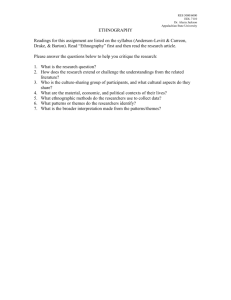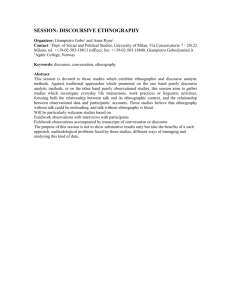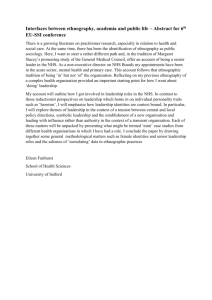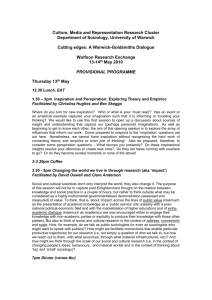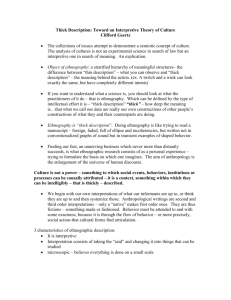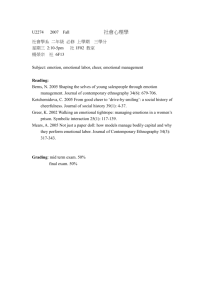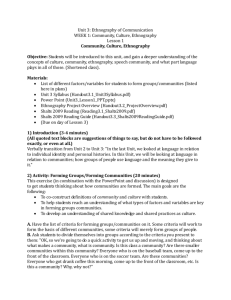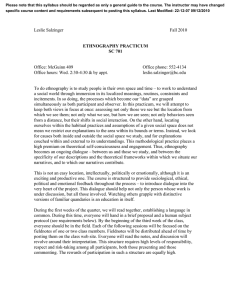Ethnography [Ethnographic Methods
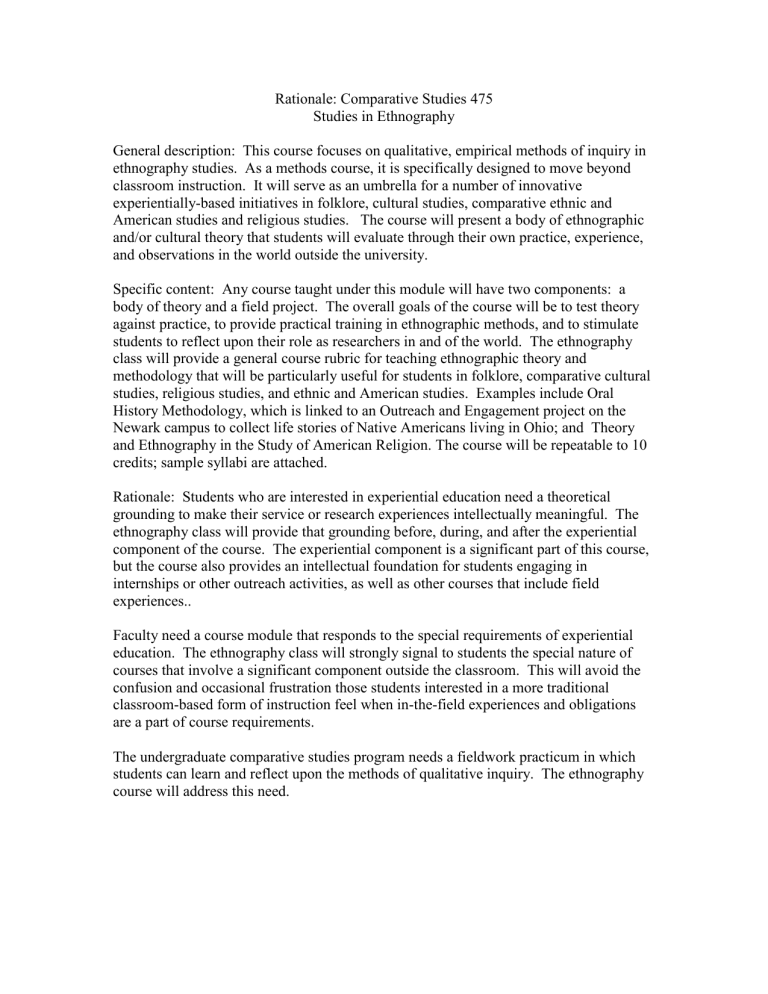
Rationale: Comparative Studies 475
Studies in Ethnography
General description: This course focuses on qualitative, empirical methods of inquiry in ethnography studies. As a methods course, it is specifically designed to move beyond classroom instruction. It will serve as an umbrella for a number of innovative experientially-based initiatives in folklore, cultural studies, comparative ethnic and
American studies and religious studies. The course will present a body of ethnographic and/or cultural theory that students will evaluate through their own practice, experience, and observations in the world outside the university.
Specific content: Any course taught under this module will have two components: a body of theory and a field project. The overall goals of the course will be to test theory against practice, to provide practical training in ethnographic methods, and to stimulate students to reflect upon their role as researchers in and of the world. The ethnography class will provide a general course rubric for teaching ethnographic theory and methodology that will be particularly useful for students in folklore, comparative cultural studies, religious studies, and ethnic and American studies. Examples include Oral
History Methodology, which is linked to an Outreach and Engagement project on the
Newark campus to collect life stories of Native Americans living in Ohio; and Theory and Ethnography in the Study of American Religion. The course will be repeatable to 10 credits; sample syllabi are attached.
Rationale: Students who are interested in experiential education need a theoretical grounding to make their service or research experiences intellectually meaningful. The ethnography class will provide that grounding before, during, and after the experiential component of the course. The experiential component is a significant part of this course, but the course also provides an intellectual foundation for students engaging in internships or other outreach activities, as well as other courses that include field experiences..
Faculty need a course module that responds to the special requirements of experiential education. The ethnography class will strongly signal to students the special nature of courses that involve a significant component outside the classroom. This will avoid the confusion and occasional frustration those students interested in a more traditional classroom-based form of instruction feel when in-the-field experiences and obligations are a part of course requirements.
The undergraduate comparative studies program needs a fieldwork practicum in which students can learn and reflect upon the methods of qualitative inquiry. The ethnography course will address this need.
